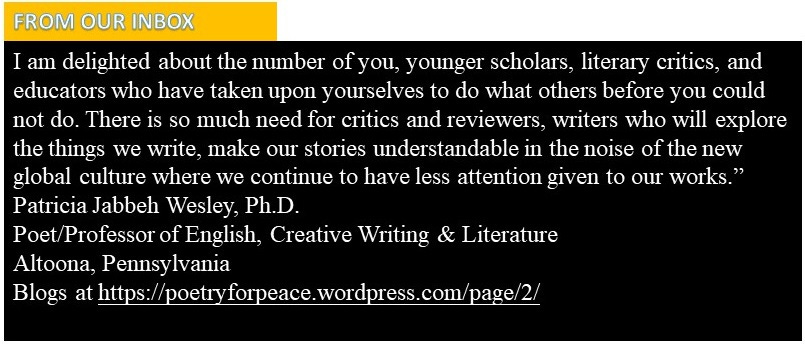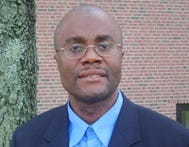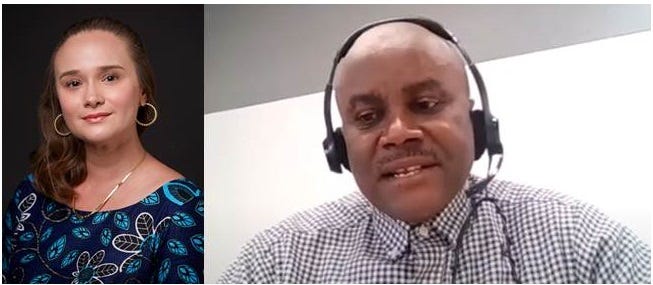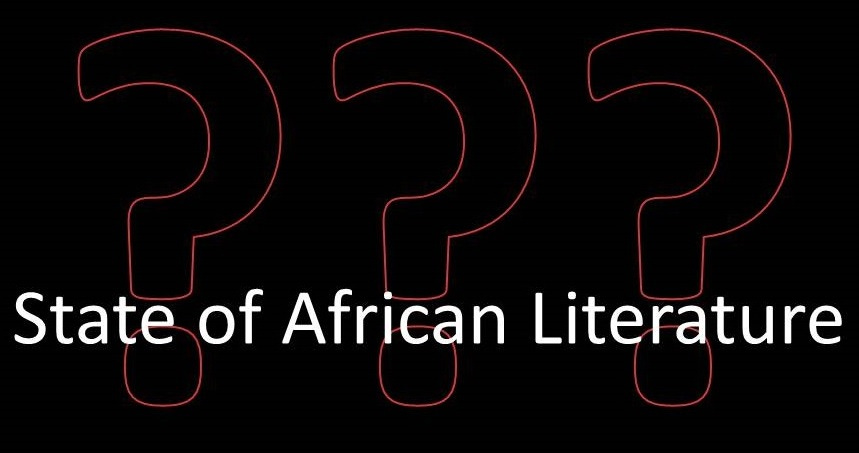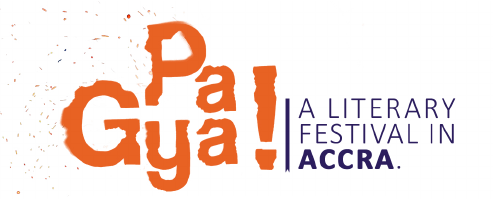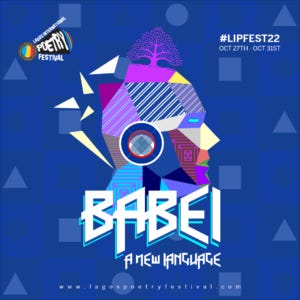Welcome to the latest issue of The African Novel digital newsletter. You have joined an exciting global community of publishers, authors, readers, writers, poets, performers, as well as academics, missionaries, and even current and former Peace Corps volunteers. We are all connected in our passion for appreciating, celebrating, and sharing African literature and performance in its many forms.
To savor this e-newsletter, we’d highly recommend you patiently read from top to bottom!
IN THIS ISSUE
Editor-in-Chief's Message
Book Review: Aleka
The African Novel Podcast: Jeanne-Marie Jackson
Author Readings: Obi Nwizu
State of African Literature
Bookshelf
Book Events & More
Our Radio Archives
African Proverb: Senegalese
Editor-in-Chief’s Message
In the August issue of The African Novel digital newsletter, I referenced Jeanne-Marie Jackson’s Jan. 2, 2022 guest essay in the New York Times, declaring that “2021 was the year for African literature.” I noted wistfully: “Professor Jackson if you are reading this, keep in mind that we’d like to meet you asap.”
Shortly after the newsletter issue was rolled out and I emailed a link to Professor Jackson, I received a response from her — in Ghana — as she was enjoying a working summer vacation with her family. Recall that this scholar of African literature and intellectual history has been awarded Andrew Carnegie Fellowship to research the work of J.E. Casely, the early 20th-century statesman and writer of the storied Gold Coast.
I hereby proudly announce in this issue of our global-audience newsletter that Professor Jackson and I have met for an episode of The African Novel Podcast that is published here, focusing on her book, The African Novel of Ideas: Philosophy and Individualism in the Age of Global Writing.
With this episode, The African Novel Podcast debuts on Spotify. Spot-on!
An invitation is open so that we can engage this researcher again in a future podcast episode on her study of Casely. Stay tuned!
From one professor to another, our heartfelt congratulations to Liberian-American poet Patricia Jabbeh Wesley for being awarded the 2023 Theodore Roethke Memorial Poetry from Saginaw Valley State University. This was announced in August, shortly as she appeared as a guest on The African Novel Podcast.
This month, our celebrated poet provides answers to our regular newsletter feature, “3 Questions on the State of African Literature.”
Finally, I hope you noticed our “in-house ad” at the top of this issue of The African Novel. We are making readers and others aware that this digital newsletter exists as a unique medium that can serve to connect you with potential customers for your goods and services. Think of a win-win situation for both parties!
While we are at it, did you read “From Our Inbox”?
Enjoy!
Cyril Ibe, Ph.D
P.S. Perhaps a friend forwarded this email to you. Sign up now to receive The African Novel directly in your inbox.
Please share the enjoyment of reading The African Novel digital newsletter with a friend, family member, or colleague.
Book Review
Title: Aleka
Author: Ketema Desta
Publisher: Nyala Publishing
Reviewer: Benjamin Kwakye
Ketema Desta’s novel, Aleka, is as much a cautionary, as well as it is, an inspirational tale. In Aleka, Ketema Desta brings us the story of the man, Aleka Belihu, a leader in the Ethiopian Orthodox Church who also wears the hats of lawyer and crusader against what he perceives as the archaic traditions of his people.
Aleka is rigid in his opposition to many of the religious beliefs and traditional practices of his people. In his quest for change, he launches a frontal attack on their customs without regard to the consequences. At the same time, he is an advocate for the rights of the dispossessed, even though Aleka himself is among the elite and privileged.
In such unflinching advocacy, Aleka, like others trying to bring about change, creates many enemies. There are too many powerful forces threatened by his crusade. And they will not surrender quietly. As he survives the many attempts on his life, Aleka’s reputation becomes almost mythical. How he expends this reputation constitutes a major part of the novel.
Clearly, Aleka’s bold advocacy for justice and change are qualities to be admired. But he also possesses a temper that sometimes blinds him to his own faults and pride that fails to compromise even in the face of imminent personal danger. Aleka dismisses the complaints of his wife in a manner unbecoming a man who so forcefully preaches against what he perceives as outmoded customs.
In a very direct and sparse style, Desta offers deep insights into the age-old struggle between tradition and change. That he does so through the portrait of his complete but flawed hero, Aleka, makes the novel even more engagingly interesting.
Ketema Desta is a native of Ethiopia. At the time the novel was published, he was residing in Miami, Florida.
Editor’s Note: Reviewer Benjamin Kwakye is The African Novel’s “Resident Novelist.”
Episode #5
Jeanne-Marie Jackson, the author of The African Novel of Ideas: Philosophy and Individualism in the Age of Global Writing, talks with Editor-in-Chief Cyril Ibe.
“I want curious readers to understand that these tough, and to some readers, academic questions are taken up in thrilling ways, really engaging ways — dare I say readable ways — by African writers, even as those writers and their novels aren’t what you may be most likely to come across thumbing the pages of a major literary magazine or newspaper book section,” Jackson says.
Past Podcast Episodes:
Patricia Jabbeh Wesley, author of Praise Song for My Children
Bayadir Mohamed-Osman, author of Second Hand Smoke
Vanessa Onwuemezi, author of Dark Neighbourhood
Cyprian Njoku Josson, author of The Immigrant Ladder
Kabuika Kamunga, author of Kabuika Wants to Make New Friends
Author Readings
Hear authors themselves reading from their works.
Obi Nwizu, a Harlem-based writer, reads from her collection of short stories, titled Residue.
Questions on the State of African Literature
Three questions are posed to writers every month. Listen here to their answers.
Responding to the questions is Liberian-born poet Patricia Jabbeh Wesley.
Are writers of African fiction “taking the literary world by storm?” these days?
Is the “tide turning” for African literature in America and the rest of the West?
Are we witnessing “a renaissance” of African literature in our world today?
Bookshelf
What writers and readers of African titles are reading:
Comparative literature professor Jeanne-Marie Jackson (Baltimore, Maryland): Brotherhood by Mohamed Mbougar Sarr (in English translation; French original); The Wolf at Number 4 by Ayo Tamakloe-Garr; The Madhouse by T.J. Benson; and An Unusual Grief by Yewande Omotoso (just started reading).
Poet Obiwu (Ohio, USA): The Girl with the Louding Voice by Abi Dare; Ijele by Uche Nduka; Samarkand by Wole Soyinka; Ingrid Joker: Poet Under Apartheid by Louise Viljoen.
Writer Arinze Ifeakandu: Hue and Cry by James Alan McPherson, and The Great Mistake by Jonathan Lee.
Writer Obi Nwizu (New York): Another Country by James Baldwin and The Girl With the Louding Voice by Abi Dare.
Poet Bayadir Mohamed-Osman (Maryland): Pathologies of Power: Health, Human Rights, and The New War on the Poor by Dr. Paul Farmer; Secrets of Div. ine Love by A. Helwa.
Writer/Poet Vanessa Onwuemezi (London): The Palmwine Drinkard by Amos Tutola; Lote by Shola Von Reinhold.
Novelist Cyprian Josson (Chartres, France): Ladies Trip by Fanny Enoh; Burning Grass by Cyprian Ekwensi.
Novelist Benjamin Kwakye (Michigan, USA): Chronicles from the Land of the Happiest People on Earth by Wole Soyinka; The Love Songs of W.E.B. Du Bois by Honoree Fanonne Jeffers.
Cyril Ibe (Ohio, USA): Things Fall Apart (in French)/Le Monde s’effondre by Chinua Achebe; Songs of Benjamin by Benjamin Kwakye.
(As a reader or subscriber of this newsletter, you can submit titles of African fiction and other books on your reading list. Tell us in what part of the world you reside).
Book Events & More…
In Person
What: Liberian-American poet Patricia Jabbeh Wesley, professor of English at Penn State Altoona, will be the featured poet for the Pa Gya! A Literary Festival 2022, the sixth edition. Highlights of the literary arts festival will include readings, book launches, panel discussions, performances, sales, and literary prize awards.
Where: Accra, Ghana.
When: October 14-16, 2022.
For more information: Visit here.
In Person
— The Lagos International Poetry Festival 2022 will be held Oct. 27 - 31. This year’s theme is “Babel…A New Language. The week-long festival convenes poets, writers, artists, and thinkers from across the globe, featuring conversations, readings, performances, workshops, and adventure.
On Demand:
What: Library of Congress’ Interviews with African Writers, a three-part series titled “Conversations with African Poets and Writers Series.” Featured are Nigerian-born author Chimamanda Ngozi Adichie, South African novelist and playwright Damon Galgut, and Tanzanian-born novelist and Nobel Laureate Abdulrazak Gurnah.
When: Available since May 2022.
Where: Library of Congress
For more information: Visit here.
Our Radio Archives
Coming soon: Offerings of rare, exclusive interviews and audio documentaries for our paid subscribers.
A partial list of archived Premium offerings:
Interview: Chinua Achebe biographer Ezenwa-Ohaeto
Interview: Nobel Laureate Wole Soyinka on his legendary cousin, Fela
Interview: The Black press in America
Interview: South African novelist Mark Mathabani
Audio Documentary: Eighty Gifts for Poet Laureate Gwendolyn Brooks
An audio tour of the Mandela House Museum in Soweto, South Africa
Interview: Ethiopian-Jewish Filmmaker Orly Malessa
Interview: U.S. filmmaker Ileen LeBlanc on Take Us Home, a documentary pic on the exodus of Ethiopian Jews to Israel.
Interview: American historian Edward Haas on slavery, the civil war, and the uncelebrated heroism of Blacks in the Union Army.
Interview: Herbert Martin, professor emeritus of English literature and African-American studies at the University of Dayton and co-editor of The Collected Novels of Paul Laurence Dunbar (Ohio University Press).
Thanks for reading The African Novel! Subscribe for free to receive new posts and support our work.
African Proverb
"An intelligent enemy is better than a stupid friend.” — Senegalese proverb
Our Team
Cyril Ibe, Ph.D., Editor-in-Chief (Ohio)
Resident Novelist/Reviewer Benjamin Kwakye (Michigan)
Nollywood Director/Filmmaker/Novelist Cyprian Josson (Chartres, France)
Contributor/Writer Kabuika Kamunga (Rochester, Minnesota)
Past Issues of The African Novel eNewsletter:
Issue #4
Thanks for reading The African Novel! Subscribe for free to receive new posts and support our work.





